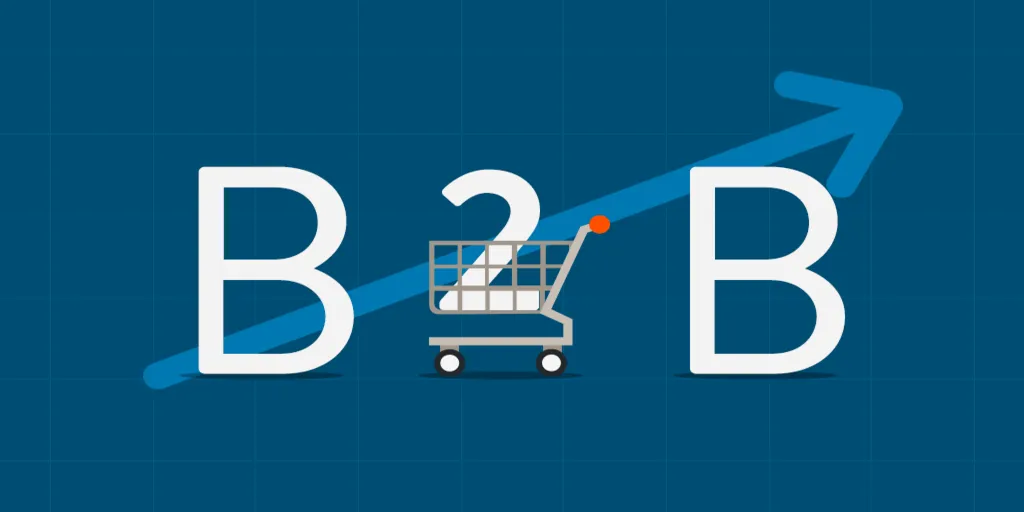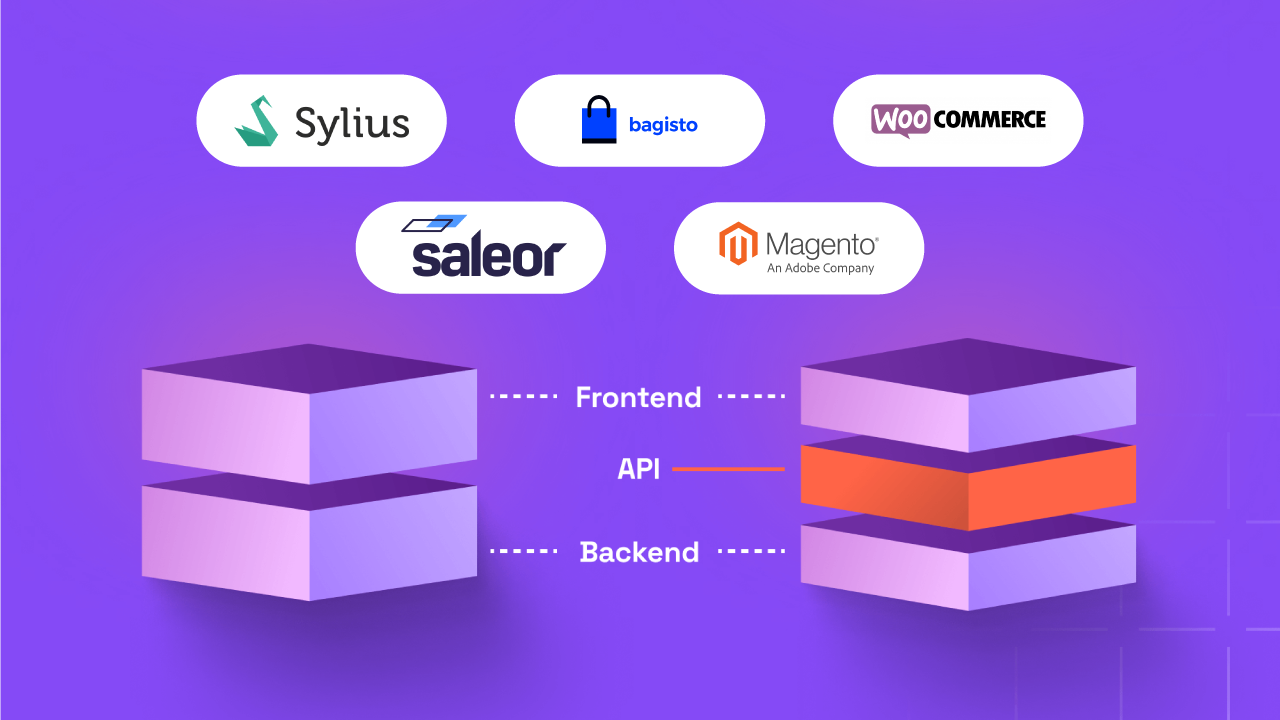Factors To Consider When Choosing a B2b eCommerce Platform

Compared to its counterpart B2C, B2B is an arena where the stakes are generally high, quantities are purchased in bulk, and the buyers are dedicated.
To succeed in the industry, you need significant foresight and careful planning.
The planning phase in question is very crucial because to run an online B2B business, you need a platform that is fine-tuned for the industry’s unique requirements.
With the myriad of platforms available, it is becoming crucial for businesses to invest wisely in their respective B2B platforms. While business models vary across the board in terms of the industry of operations, the end goal is to select a platform that’s the right fit for your business.
This, in turn, requires you to assess your business model. Asking the right questions and creating a list of your requirements allows you to choose a platform that is the closest to your business.
To provide you with a head-start, we’ve created a list of the five most important factors you need to take into account before selecting a B2B platform. Bear in mind, that all of these considerations, while important in their own right, will fall short if you do not conduct an audit of your business requirements.
This checklist is written to help you identify the technical and non-technical prerequisites of a B2B eCommerce platform, so you don’t get confused when you go searching for it.
So, let’s begin…
B2B Development Agency
We provide customized B2B eCommerce solutions.
1. A Platform That Supports Your B2B Workflows

If you’re reading this article, you’ve likely done some basic groundwork regarding your choice of platform.
You might even have visited the sites of certain platform providers who are offering a “complete B2B solution” for your business. But take a moment to explore their other platforms and more often than not, you would find that most of these platforms have already made a name for themselves serving platforms for the B2C industry.
To put it simply, they’re utilizing B2C technology and marketing (with a few features) it as a B2B eCommerce solution. Now, such a solution might fit your business requirements in the short-run; but in the long-run, you’re going to run into some complications.
Ideally, you should look for the following B2B specific features when looking for a platform:
- Dynamic Pricing
- Customer-segmented product catalogs
- Inventory management
- Re-order capabilities
- Quick order functionalities
- Request for quote
…among many others.
Even if your business requirements are unique in their own right, it is always beneficial that your platform provider offers the functionalities we mentioned above out of the box. If not, then you’re going to have to incur the expense of hiring developers to perform the customizations yourself.
2. A Platform That Provides Third-Party Integrations

The primary reason why B2B initiatives fall short of success is due to the fact that they fail to take crucial integration requirements into account.
There are plenty of platform providers who offer B2B integration solutions with the help of an “easy-to-install” plugin. More often than not, however, it’s not as easy as they make it out to be.
You need a B2B solution that seamlessly integrates with your back-office systems like CRM, ERP, Payment Gateways, and account management systems.
Customer and organizational data are important. A synchronized B2B integration system helps ensure that all your data – from inventory levels to a customer’s order history – is stored and accounted for in one place.
Even though self-service is now commonplace in B2B, there are plenty of customer service issues that cannot be automated. Just take the example of troubleshooting customer queries, you still need a back-office database that has an account of a customers’ entire purchase history.
Having access to such information not only leads to good customer service, but it also provides an opportunity for businesses to analyze customer behavior, which can be used to improve the quality of service in the long-run.
So, before you start eyeing a potentially useful B2B enterprise platform, you need to inquire whether or not it provides seamless integration.
3. A Platform That’s Customizable and Scalable

As a successful business, you would ideally want to expand your current operations. To facilitate that expansion, you require a platform that scales with your business and is robust enough to handle increasing demands.
When it comes to B2B platforms, scalability and customizations go hand-in-hand. When looking for a B2B solution, you must assess whether or not the platform in question is built on a scalable architecture, and is sturdy enough to support your business’s needs.
With customizations, the general rule is that the platform should support it, but as mentioned in the first section, it should come with B2B-savvy features out of the box. Both the former and the latter are very important in this regard because:
You want to start your B2B operations without having to worry about customizations in the beginning since the platform comes with the basic features that support it.
You don’t want a closed-source platform that doesn’t even have room for customizations.
When assessing scalability and customizations for a B2B eCommerce platform, you need to start asking the right questions. In this scenario, the questions could be something like this:
Is the platform fast and flexible to support my future scaling requirements?
Does the platform provide plugins and extensions that can provide my store with the functionalities I want?
If not, then does it provide my developers with enough room to build a custom solution for my store?
An additional requirement would be to assess the load-times and mobile responsiveness of the platform. Since the majority of B2B buyers are placing orders from their phones, it makes sense to check whether or not the platform provider has that. Moreover, it can have serious SEO and marketing implications.
4. A Platform That Provides Stellar Customer Service and Security

The customer service of your platform provider plays an essential role in the success and failure of your business. From software malfunctions to downtimes, there are plenty of technical issues that can antagonize your brand image and sales revenues.
When selecting a B2B eCommerce platform, you need to find out how focused your provider is towards customer service. To analyze their level of customer service, you need to start asking the right questions:
- Do they provide 24/7 live chat support?
- Is there a lot of red-tape and waiting required to get support?
- How many levels of support do they provide?
Depending on your business, you can come up with plenty of other questions as well.
What is important is that you consider these questions beforehand so that you avoid any pitfalls in the future.
Now, coming to security. The modern customer, regardless of whether he is B2B or B2C, is aware of internet scams and isn’t inclined to share sensitive information if he feels that the site is not secure. Fortunately, most B2B platform providers do keep security as a major selling point in their platforms.
Just to be sure it is always good to see whether or not the platform facilitates HTTPS/SSL secure checkout, and is Payment Card Industry (PCI) compliant.
5. A Platform That Helps You Manage Your Shipping Partners

Logistics and supply chain management is an essential part of B2B eCommerce. You need to ship your products on time and without delays. Drawbacks in B2B logistics are a nightmare and something you don’t want to encounter.
Because of which, you need to invest in a B2B platform that handles your logistics and shipping liaisons effectively. In simple terms, your platform should ideally provide you with easy integration with your shipping partners. The primary benefit of this is that it streamlines communication with your current partners. The second benefit is that it gives more opportunities to reach out to more suppliers for your business, thus widening your reach in logistics and shipping.
Again, you have to ask yourself some questions before selecting a vendor:
- Is the platform integrated to support national and international logistics?
- Do I have to incur an additional cost when selecting a shipping partner?
- Is the platform built to provide me with updates regarding my shipping situation?
- Does it provide me with options for optimizing my shipping costs?
If the platform providers in question answer in the affirmative, then good for you. You now have a platform that’s focused on growth instead of just selling the product to its consumers.

Conclusion
Starting up a new business venture, or migrating your traditional venture to an online, is a challenging task, to say the least. There are too many things to consider, and with the myriad of platforms out there, the selection process becomes even more difficult.
To stay ahead of the curve, you need to plan ahead. Combined with the questions we posted above; our parting advice would be to extend that list and develop use-cases relative to your business operations and then go about selecting a platform.
If the platform meets your criteria and your budget, then the sky’s the limit for you. You will be able to grow, scale, and become successful in your B2B venture without having to worry much about the technicalities involved.
Good luck.
Read Also




